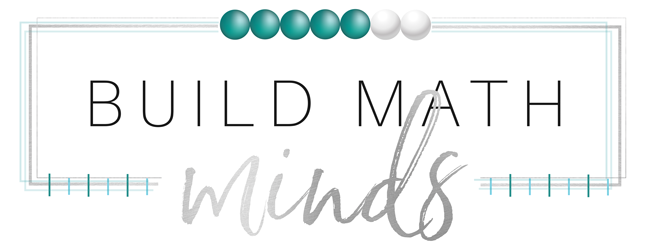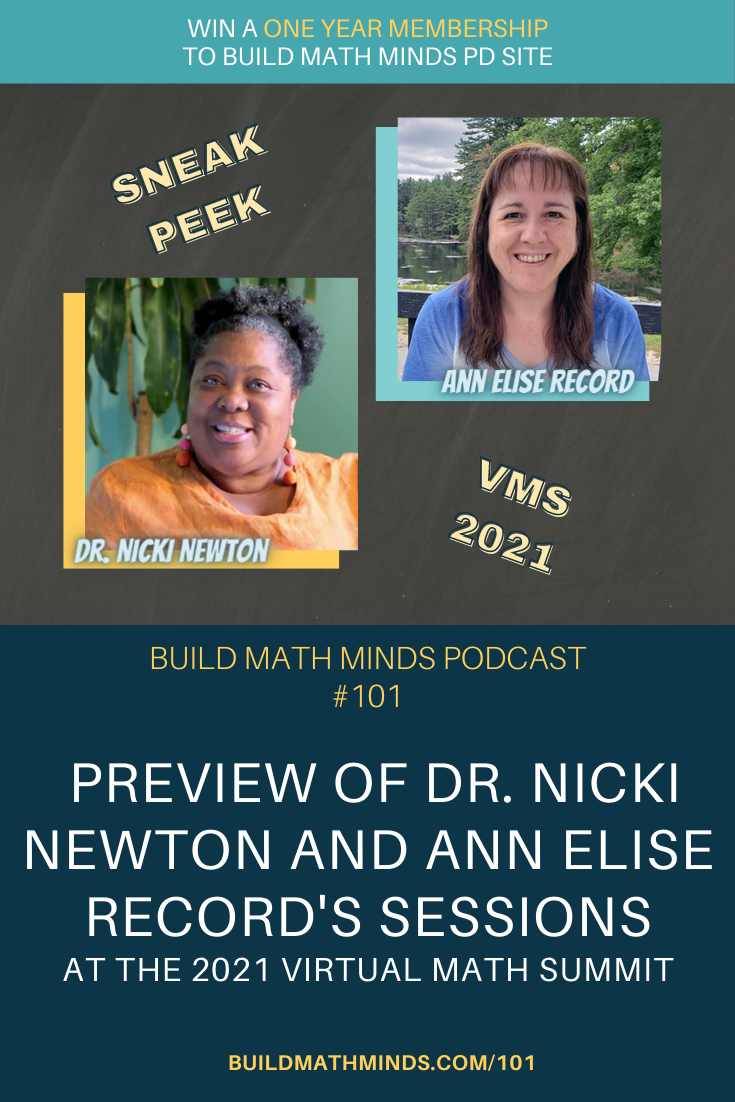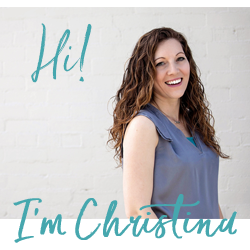Resources mentioned in this episode:
Register for the Virtual Math Summit 2021
Look at the list of all the Virtual Math Summit speakers
**Scroll down to the bottom of the post to find the details for the One Year Membership giveaway!!**
Welcome to Build Math Minds the podcast, where fidelity to your students is greater than fidelity to your textbook. I’m your host, Christina Tondevold, the recovering traditionalist and BuildMathMinds.com Founder, where my mission is to change the way we teach elementary math to our kiddos. Are you ready to start building math minds and not just creating calculators? Let’s get started.
This week is another preview week of a couple of presenters at the 2021 Virtual Math Summit. I decided to put the preview of Ann Elise Record and Dr. Nicki Newton together because they have co-authored a book together, but they are actually speaking about two different topics at this year’s Virtual Math Summit.
The 2021 Virtual Math Summit will be July 29th and 30th. If you want to join me and the 23 presenters this year, go to VirtualMathSummit.com/register to get registered.
Here’s your sneak peeks for this week.
Our first sneak peek is Dr. Nicki Newton. She is doing a session on Dyscalculia The Math Learning Disability: What every teacher needs to know.
Dr. Nicki is one of those people who doesn’t need her last name mentioned for people to know exactly who you are talking about. Dr. Nicki’s presentations are jam packed with information and practical ideas you can implement right away. I’m so glad she is talking about Dyscalculia for this year’s summit. I get lots of questions about Dyscalculia and I am not an expert. So I can’t wait for this session this summer.
Dr. Nicki Newton: One of the top five learning disabilities is dyscalculia. We need to know more about it. 5 to 8% of elementary school children, they have it. It occurs generally, it occurs equally rather in both genders. And it can overlap with dyslexia and some other disorder such as visual and auditory processing and ADHD. Here are some myths. Myth #1, all children with dyscalculia have the same math learning disabilities. Not true. Myth #2, dyscalculia is another name for math anxiety. Not true. Myth #3, dyscalculia is dyslexia, but for math. Not true. Myth #4, dyscalculia isn’t very common. Not true. We don’t recognize it, but it is prevalent and it’s in our schools. Myth #5, kids can’t with dyscalculia can’t do math. All kids can do math. It’s just about the scaffold.
As I mentioned, Dr. Nicki has done work with Ann Elise Record. One of the ways Dr. Nicki and Ann Elise connected was through Math Running Records. In this year’s summit, Ann Elise is doing a session titled Math Running Records: How One Assessment Has Changed the Math Culture of Districts.
Ann Elise is well known for her PD around Math Running Records and Cuisenairre Rods. She is a facilitator inside the Build Math Minds PD site where she helps create videos PD for members and facilitates our book studies. I’m excited for you to learn more about one of her favorite things: Math Running Records, which were first developed by Dr. Nicki.
Ann Elise Record: And how we assessed the students to be able to know how they’re doing on this math fact journey? We’ve given them timed tests, because we’ve defined fluency as speed and accuracy. And certainly timed tests measure speed and accuracy. And so, I want to offer you today a different journey. The destination is the same. We all want our students to be relatively speedy with their math facts and of course being accurate. But instead, how about this instead? How about we do number talks with students and we use math tools with them that made the number relationships and the quantities come to mind? So for example, doing a rekenrek that has 6 beads on the top and 7 beads on the bottom. They’re color coded to help our students understand the benchmark numbers of 5 and 10. Now, if I were to ask students how many beads are on that rekenrek right now, some students might count them all. That tells me they’re in the counting phase of reasoning. Other students might say, well, I begin at the 6 and I counted on 7 more. Still counting phase of reasoning, but we’re counting on now.
Ann Elise Record: Still, other students will tell me, or I started with the 7, and they counted on the 6. So they know they can start with the larger add end, even if it becomes second. That’s another landmark what they were looking for. But yet other students will tell me, well, I know 6 and 6 is 12. And I can see in those beads there that a 6 and 6 being 12, 6 + 7 must be just one more. It’s a 13. Other students have told me, well, I can see those two 5s. 5 and 5 is 10. And in a 6 and a 7, there’s one and two more. So, I can rename that as being 10 + 3. Other students like thinking about 7 and 7 is 14. And they remove one to get to the 13. And still others break apart that 6 into 3 and 3, because 3 of the 6 can join that 7 to make a 10. And that strategy, we can forward all the way through the multi-digit numbers, decimals, and fractions.
Ann Elise Record: So being able to have these open discussions with students, but being aware where they are on that journey will help us provide instructional responses that meet their needs and move every child forward. And how will they practice these? They’ll play games. They’re going to play games that are already naturally engaging and fun, and be learning and making those connections in creating those neural pathways in their brain that they need to be able to work with the mathematics. And how do we find out how they’re doing with that journey? We talk to them. We give them a Math Running Record. We sit down one-on-one and talk to the students. That’s going to provide the data that we need. The true data, not just a time test data, but true data of where the students are in their thinking with the basic facts. So, we can then cater that instruction to what their needs are and help them apply these and not limit them just to the basic facts.
If you want to watch these entire presentations, make sure you go get registered for the summit at VirtualMathSummit.com/register.
Many of the presenters will be there interacting with participants in the chat area and this year we even have an upgraded experience where you can ask questions of presenters during a few speaker panel Q & As. Both Ann Elise and Dr. Nicki will be at the speaker panels so you can ask them questions about their sessions. In order to participate in those panels you do need to upgrade to the VIP or become a BMM member.
The Virtual Math Summit has always been free to attend for 10 days but if you want extended access and more interaction with presenters go over to virtualmathsummit.com/register to see the options for upgrading your Virtual Math Summit experience.
Don’t forget to enter the giveaway below before it ends tonight (June 20th).




